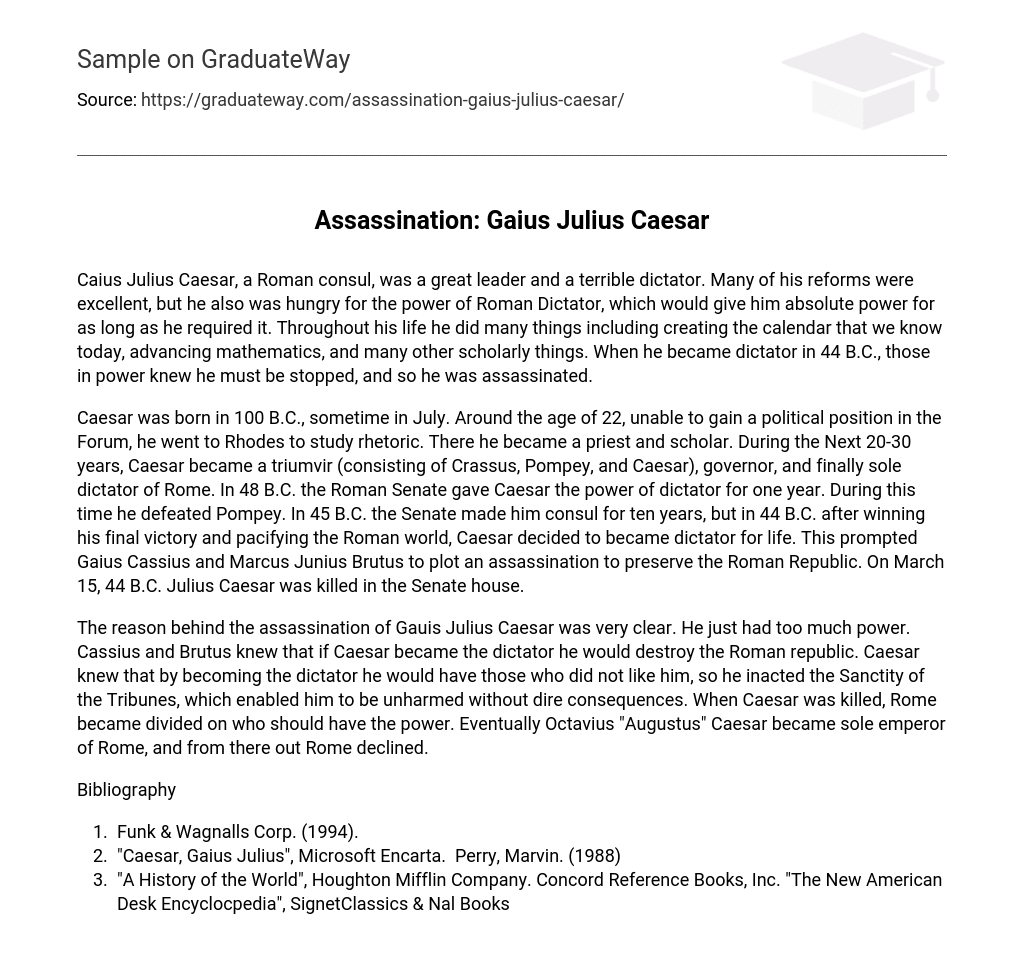Caius Julius Caesar, a Roman consul, was a respected leader and a tyrannical ruler. Although he implemented some commendable reforms, his relentless desire for the power of Roman Dictatorship, which would give him unlimited authority, was apparent. He achieved many things in his lifetime, including the establishment of the modern calendar, advancements in mathematics, and various scholarly pursuits. However, when he became dictator in 44 B.C., those in power realized that they had to stop his rule and therefore resorted to assassination.
Caesar was born in 100 B.C., specifically in July. When he was around 22 years old, he went to Rhodes to study rhetoric after being unable to secure a political position in the Forum. During his time there, he became both a priest and scholar. Over the course of the next 20-30 years, Caesar held various positions including a triumvir along with Crassus and Pompey, governor, and ultimately becoming the sole dictator of Rome. In 48 B.C., the Roman Senate granted Caesar the authority of dictator for one year, during which he successfully defeated Pompey. Then, in 45 B.C., the Senate appointed him as consul for ten years. However, in 44 B.C., after achieving his final victory and establishing peace in Rome, Caesar decided to take on the role of dictator for life. This decision led Gaius Cassius and Marcus Junius Brutus to conspire against him in order to protect the Roman Republic. Consequently, on March 15, 44 B.C., Julius Caesar was assassinated within the Senate house.
The assassination of Gauis Julius Caesar had a clear motive: he possessed an excessive amount of power. Cassius and Brutus were aware that if Caesar were to become the dictator, he would dismantle the Roman republic. Caesar, foreseeing opposition, implemented the Sanctity of the Tribunes to ensure his safety with minimal repercussions. Following Caesar’s assassination, a division arose in Rome regarding who should assume power. Ultimately, Octavius “Augustus” Caesar emerged as the sole emperor of Rome, marking the beginning of Rome’s decline.
Bibliography
- Funk & Wagnalls Corp. (1994).
- “Caesar, Gaius Julius”, Microsoft Encarta. Perry, Marvin. (1988)
- “A History of the World”, Houghton Mifflin Company. Concord Reference Books, Inc. “The New American Desk Encyclocpedia”, SignetClassics & Nal Books





